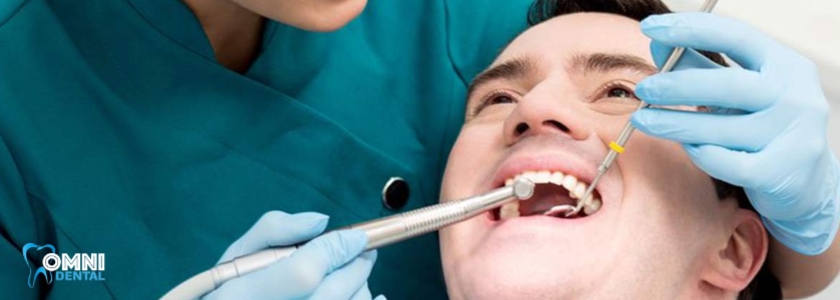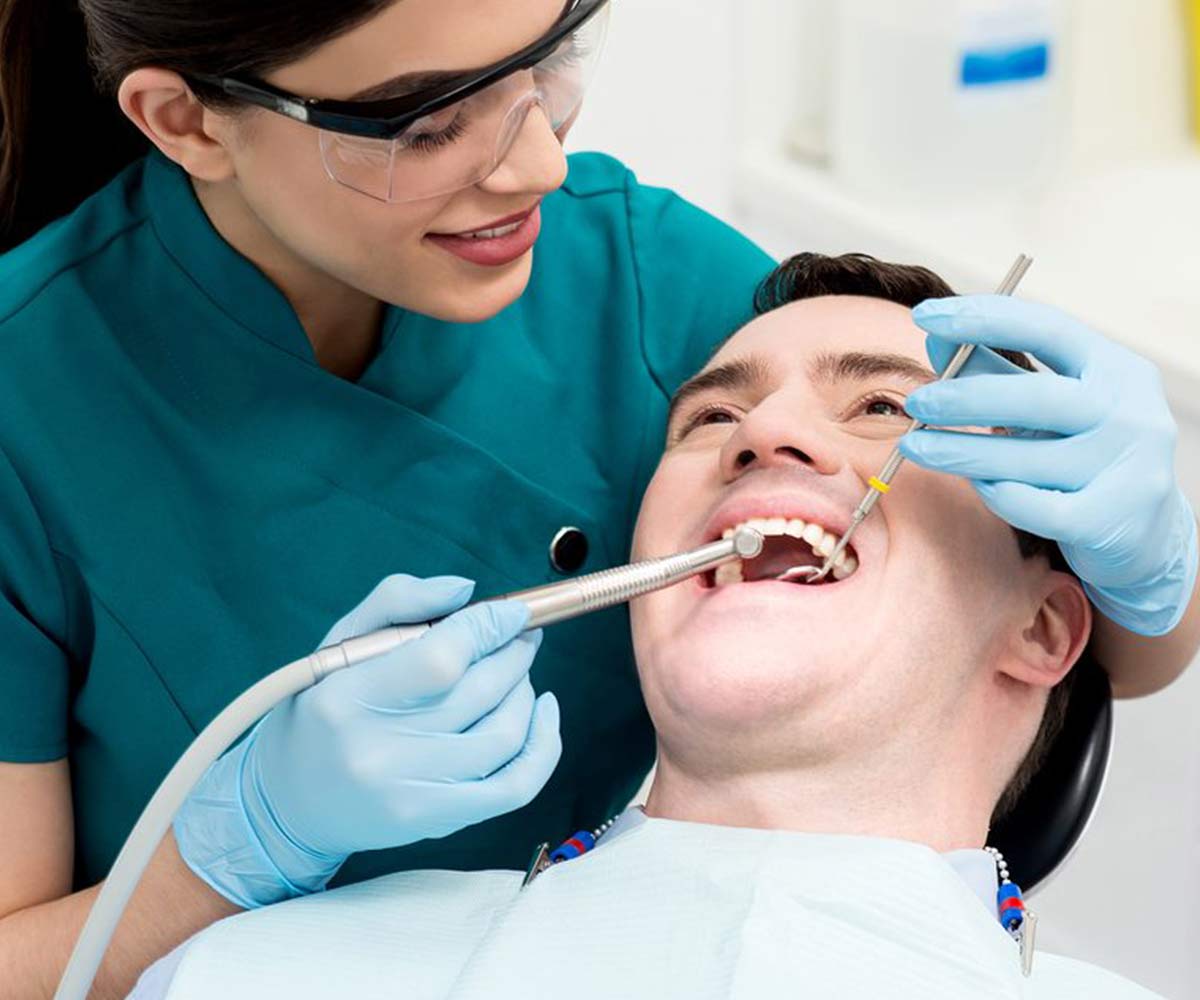
Periodontal scaling and root planing known as Deep Teeth Cleaning and sometimes referred to as gum therapy is similar to how a hygienist typically cleans your teeth but focuses on the outer surface of the roots and below your gum line. It is more extensive than a standard cleaning and is designed to treat gum disease. This special cleaning is needed when tartar buildup has caused infection of the gums. Pockets form, a widening of the gum line that has pulled away from the tooth. Loss of this connective tissue can lead to bone loss and, eventually, tooth loss.
Dental Implant
Emergency Care
Teeth cleaning
What Causes Periodontal Disease?
Hormonal changes
During pregnancy, puberty, menopause, and monthly menstruation make gums more sensitive, which makes it easier for gingivitis to develop
Illnesses
May affect the condition of your gums. This includes diseases such as cancer or HIV that interfere with the immune system. Because diabetes affects the body’s ability to use blood sugar, patients with this disease are at higher risk of developing infections, including periodontal disease and cavities.
Bad Habits
This disease is very common in smokers. Smoking make it harder for gum tissue to repair itself.
Poor Oral Hygiene Habits
Not brushing and flossing on a daily basis, make it easier for gingivitis to develop and it’s bad for your overall oral health.
Family History Of Dental Disease
Can be a contributing factor for the development of gingivitis.
Preventing infection and gum inflammation will help you to avoid periodontal disease which can cause tooth loss or later on effect your heart health. Generally if you have:



Do I Really Need a Deep Teeth Cleaning?
It comes to dental deep cleaning only your dentist or dental hygienist can tell you for sure which is so important to avoid or caught periodontal disease in early stages. If you appear to have those signs This makes you a candidate for the deep teeth cleaning and it is highly recommended if you want to stop and prevent the progression of the disease. Without treatment, the bacteria that created the pockets in your gums will continue to create plaque, tartar, and bone loss.
If you are told you need a deep teeth cleaning, you’re not alone! According to the American Academy of Periodontology, nearly half of adult Americans suffer from gum disease. Still not convinced? More and more research has shown a direct link between the progression of gum disease and the development of more serious illnesses including heart disease, diabetes, dementia and more. Bottom line, if your dentist or hygienist says you need a deep teeth cleaning, you owe it to your overall health to take care of it.
Does Scaling & Root Planning During a Dental Deep Cleaning Hurt?
It can cause some discomfort, so your dentist will use a local anesthetic to numb your gums during cleaning. After your dental visit, your gums will probably be a bit tender, its normal if you bleed slightly when you (gently) brush your teeth over the first few days following deep cleaning visit to the dentist. Eating hot or old stuff can make your teeth and gums sensitive and usually takes a few weeks to see sensitivity is completely gone and meanwhile your dental professional can offer you over the counter pain reliever to ease your discomfort.
How To Prepare For Your Dental Deep Cleaning Appointments?
First thing is informing your dentist with your health history. This is because the procedure can release bacteria into your bloodstream. You may be in high risk if you have history of AIDS, heart condition, liver disease, joint replacement or any other illness that may have weakened your immune system. If so extra precautions is necessary by your dentist during the procedure to reduce your risk and perhaps proscription of antibiotic a few days before your appointment.
Also your dentist may ask you to stop taking blood thinner such as Plavix, Eliquis, Warfarin or Pradaxa, for a few days before the procedure. However, this must be coordinated with the doctor who prescribed the blood thinner. Don’t stop one of these medications without consulting them.


